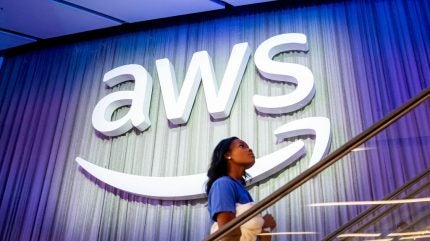
Amazon Web Services (AWS) and US-based Memorial Sloan Kettering Cancer Center (MSK) have announced a partnership to leverage artificial intelligence (AI), high-performance computing (HPC), and cloud technology to accelerate cancer research and drug discovery.
AWS is one of the world’s largest cloud providers, recently reporting a $107.6bn in segment sales in 2024. The partnership will focus on building a longitudinal data resource for cancer research at MSK, a cancer treatment and research institution based in New York City. According to MSK, it played a role in 11 drug approvals by the US Food and Drug Administration (FDA) in 2024. These approvals included “new uses for existing drugs, more effective drug combinations, engineered cell therapies, and novel classes of targeted therapies”.

Discover B2B Marketing That Performs
Combine business intelligence and editorial excellence to reach engaged professionals across 36 leading media platforms.
The longitudinal data resource is set to serve as a validation tool for researchers and industry partners. The goal is to enhance data-driven insights, personalise treatment strategies, and improve patient care. As part of the collaboration, MSK will utilise large language models (LLMs) through Amazon Bedrock and Amazon SageMaker to address data quality challenges in AI model development.
These tools will enable secure fine-tuning on de-identified patient data, increasing data density and processing speed. Additionally, the platform will provide a testing environment for AI model performance, allowing researchers to refine their models and improve confidence in AI-driven insights. This technology will also support the tracking of disease progression over time through computable disease trajectories.
MSK researchers plan to accelerate early-stage drug development by using the AWS Drug Discovery Workbench to screen millions of compounds for potential therapeutic candidates. AWS’s high-performance computing solutions, including AWS Parallel Cluster, will support complex simulations and Cryo-EM data processing to analyse protein structures and drug interactions. This is expected to reduce the time and cost required to develop new cancer treatments.
AI’s ability to narrow the search space for drug candidates is one that has seen a lot of investment. By helping researchers focus on the most viable options early in the process, AI can reduce costs and accelerate timelines.

US Tariffs are shifting - will you react or anticipate?
Don’t let policy changes catch you off guard. Stay proactive with real-time data and expert analysis.
By GlobalDataAWS has been expanding its presence in the healthcare sector through multiple partnerships. In January, it announced a collaboration with Aidoc to address systemic care delivery challenges using AI. In late 2024, AWS partnered with Kipu Health to apply generative AI in behavioural health and expanded its work with Sapio Sciences and NVIDIA to advance AI in drug discovery.
AWS has existing relationships with big pharmaceutical companies, including a multi-year cloud migration partnership with MSD since 2021. MSD has been transitioning IT applications, including machine learning software and data warehouses, to AWS as part of its digital transformation strategy. Pfizer and Novartis also have long-standing partnerships with AWS.
GlobalData analyst Jemima Walker previously told Pharmaceutical Technology that, cloud computing allows for secure R&D collaborations between research teams in drug discovery and development. “It simplifies data transfer from laboratory equipment and can enable scientists to analyse results and generate outcomes faster. “Any company not investing in cloud computing will fail to reap the benefits of the technology,” she stated.




